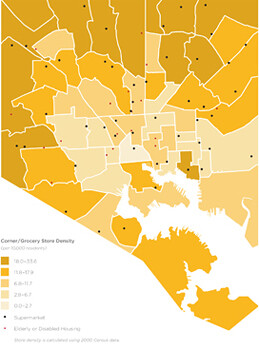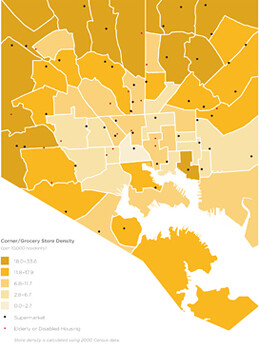College Receives 150,000 USD Grant to fund the Baltimore Art + Justice Project
Maryland Institute College of Art (MICA) announces the launch of the Baltimore Art + Justice Project, the first project of its kind in the United States to identify, amplify, and connect arts-based practitioners advancing the cause of social justice in a particular city. The project, in partnership with a citywide advisory committee, kicks off with a two-year, 150,000 USD grant from the Open Society Foundations in New York
“We’ve had over a decade of investment in Baltimore through the work of our local foundation, and we’re thrilled to support a project that leverages MICA’s resources to maximize the impact of art on social change in this city,” said Erlin Ibreck, director of the Strategic Opportunities Fund at the Open Society Foundations. “We hope other cities look to Baltimore Art + Justice Project as an example of a viable means to transform and revitalize communities.”
Baltimore Art + Justice Project is being developed as the inaugural city platform with Animating Democracy—a program of Americans for the Arts—which seeks to answer a similar set of questions on a national scale through its Arts & Social Change Mapping Initiative. By collaborating with national allies in the field, Baltimore Art + Justice Project seeks to contribute to a countrywide dialogue on the role of art and design in fostering community transformation and change.
“Baltimore is a city with deep roots, a strong identity, and a lot of moxie. There is a wealth of creative energy here that is transforming the city,” said Karen Stults, director of community engagement at MICA. “As a top tier college of art and design based in Baltimore, MICA is deeply interested in the ways arts-based programs and initiatives are being used to celebrate strengths, explore issues, and address inequities throughout the city.”
Baltimore Art + Justice Project aims to map the city’s arts-based social justice assets; create a set of tools that enable practitioners and their allies to more easily connect, share resources, and, if desired, develop a collective voice for advocacy; and to garner increased support for, and investment in, arts-based strategies for social justice and social change.
Data collection and dialogue will be pursued through a variety of outreach means, including participation in community meetings, festivals, and events; social media; print resources; and organizations’ data kiosks in accessible neighborhood locations. Using an online data collection tool through Animating Democracy, local arts practitioners will be asked to create profiles articulating and defining their work and its outcomes.
The project will be housed within MICA’s Office of Community Engagement, which will provide oversight and assistance, and will be led by a project coordinator. The project, as currently envisioned, will be implemented over a two-year period.
“A joint mapping platform will make Baltimore artists and cultural assets part of a national resource in which their individual projects gain higher visibility, and Baltimore’s collective strength in this arena can be highlighted,” Animating Democracy Co-Director Barbara Schaffer Bacon said. “For Animating Democracy, a joint platform is a critical first step toward representing local and regional community arts activity as part of a comprehensive national picture.”
Likely tools developed from this data gathering include the following: a series of community dialogues and funder briefings to discuss findings; a database of arts-based partners and practitioners; an online map linking actual projects and real-time data about them; an archive of video links that help to illustrate exemplary projects and processes; and an electronic glossary of useful terms, definitions and links to other resources.
The Baltimore Art + Justice Project advisory committee guiding the project includes individual community artists, designers and arts administrators, as well as advisors representing the following organizations: Animating Democracy, Baltimore Community Foundation, Baltimore Office of Promotion & The Arts, Child First Authority, Greater Baltimore Cultural Alliance, MICA faculty, Native American Art After School Program of Fusion Partnerships and Open Society Institute-Baltimore.



